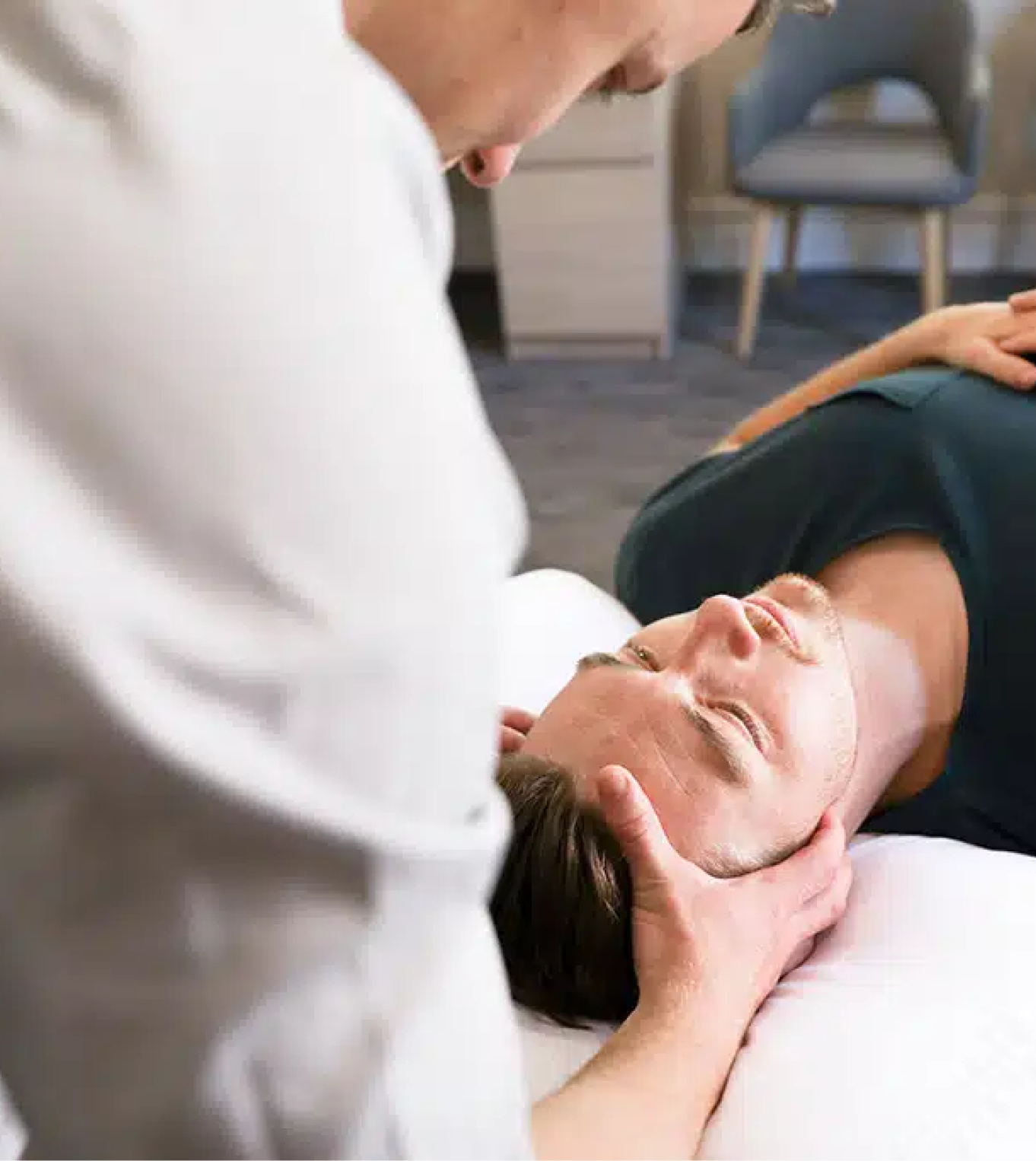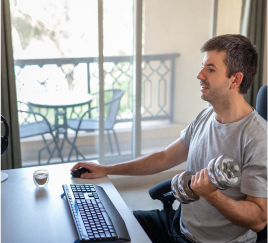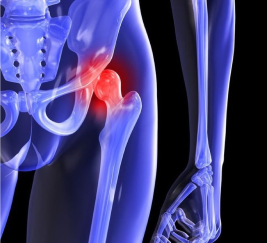Headache
Other causes include∶
- eye strain
- sinus congestion
- whiplash injury
- stress
- poor posture
- jaw imbalance and teeth grinding
- infection
- allergies and food intolerances.
Depending on you presentation an osteopath may∶
- work on your general mobility
- improve the mobility of your ribs and thoracic and cervical spine
- investigate muscular tension, nerve compression and inflammation
- advise on posture, exercise and stretching to help prevent a recurrence of symptoms
- offer guidance on diet and preventing dehydration
- advise on improving the ergonomics of your home or workplace.


Osteopaths, as primary health care practitioners, are trained to differentiate between headaches with common causes and those due to serious pathology. You should always seek advice from a health professional, including an osteopath, if you get a headache after a head trauma and/or the headache is getting worse.
You should also seek professional advice if the headache is accompanied by∶
- fever
- nausea or vomiting
- bleeding or fluid draining from the nose or ears
- dizziness
- blurred vision or speech
- numbness, tingling or paralysis.
Did you know?
- headaches are one of the most common medical complaints. A headache is rarely caused by serious underlying disease.
- your osteopath may be able to assist with treatments that reduce the need for headache medications.
- your osteopath is a primary health care practitioner with the training and skills to assess your complaint and develop the most effective course of action (including referral when clinically indicated).
- your osteopath can assess structural changes that may lead to immobility, pain and dysfunction. Your osteopath will perform a thorough physical examination, including observation and palpation, to form a diagnosis and treatment plan.
If you get regular headaches, try keeping a headache diary
If you experience headaches regularly, keeping a headache diary can help identify these triggers and ultimately help them avoid them. A headache diary allows you to record important details about your headaches, such as symptoms, frequency and other. This diary will provide your osteopath with important information.






